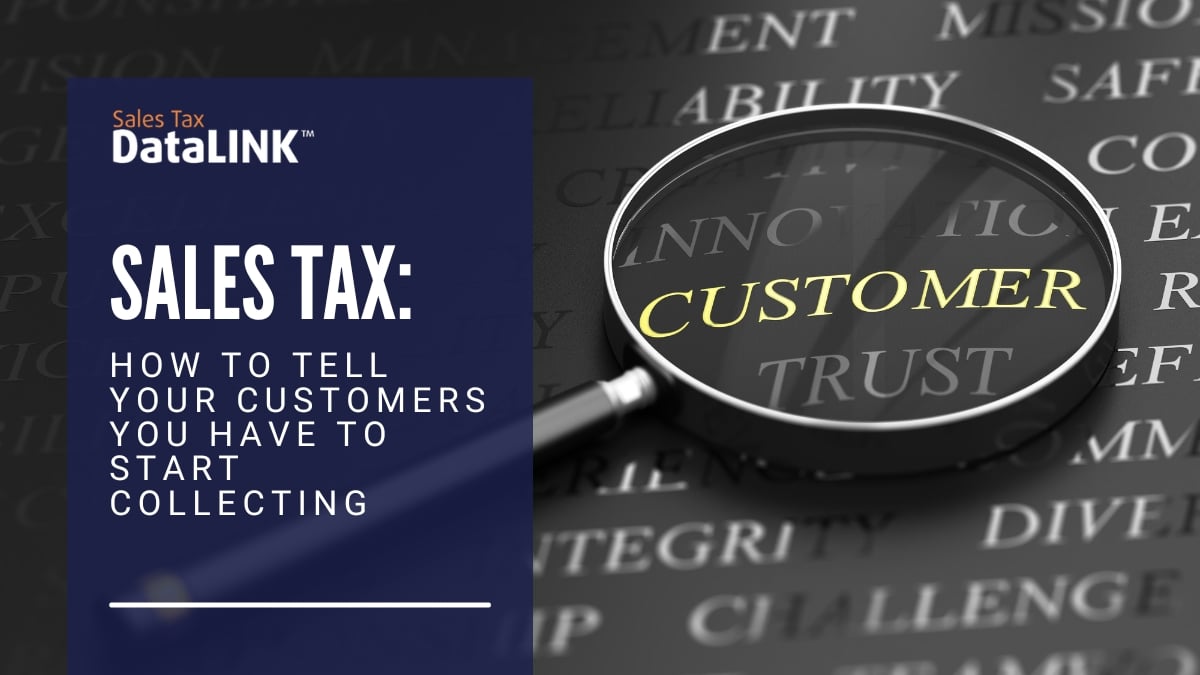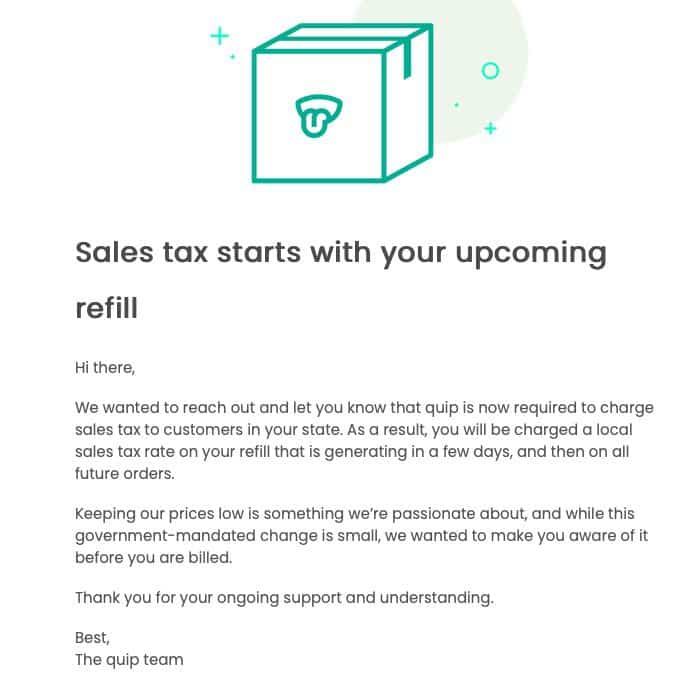With the Wayfair decision from the Supreme Court, many companies have found themselves required to collect sales tax when they haven’t done so before. Customers may feel that this is a price hike. If you must collect sales tax in one state but not in another, customers may know that some people are paying sales tax and some are not. Chances are good that they won’t understand why.
How can you handle this in the most helpful way?
Let customers know
When will you have to start collecting sales tax from a given state or municipality? Usually, this takes place when you hit the threshold for revenue from the site or locality. It can be quite sudden, from the point of view of your customers. One day you do not have to collect from that state’s customers, and the next day, you must.
Quip, a maker of toothbrushes and other oral care products which sells with a subscription model, sent a notice to subscribers as soon as it reached the point of having to collect taxes in each state. They explained that they would be charging customers for sales tax, reminded them that this was a “government-mandated change,” reassured them that the change in price would be small, and thanked them for their understanding.
Now, toothbrushes are not taxable in Pennsylvania, but in Kansas they are. Quip will have made sure that they are not charging sales tax in jurisdictions where their products are tax-exempt.
Consumers have sued companies for errors of this kind, so it’s important to be clear on taxability and nexus before announcing changes in sales tax collection.
Make sure sales tax is listed separately
Invoices should list sales tax separately from goods and services. Most states require this.
Listing sales tax separately also makes it clear that the addition of sales tax is not a price increase. This can be an issue for consumers. When Kentucky added 30 new services to its list of taxable items in January 2023, businesses from bodyguards to yoga studios found themselves required to add 6% to their invoices.
Small business owners were quoted in news reports as worrying that they would lose clientele, that tips would decline, or that consumers would simply use their services less. Local news often presented the issue as “people will be paying more for many services.”
Listing sales tax separately can help your customers get past the feeling that prices have gone up by showing exactly how much more your goods or services are costing them, as well as clarifying that this is a legal requirement and not your decision.
Remember use tax?
When you must collect sales tax from out-of-state customers, it’s worth noting that this really is not a new cost. Consumers are supposed to pay use tax to their state for all their online purchases. When sellers don’t collect the tax as sales tax, most consumers do not pay it as use tax.
That doesn’t mean that it is a new charge, though. It just means that they have not been paying it.
In our experience, this argument is not convincing for the average consumer. Having to pay sales tax on items they previously haven’t paid tax on will continue to feel like a price increase, even if you alert them to the fact that they should have been paying it as use tax all this time. It’s probably not worth bringing it up.
Follow Quip’s example and warn customers ahead of time if you can, make sure they understand that this is a tax required by the government, and make sure that you are collecting accurately.
SalesTaxDataLINK can help. Our complete sales tax compliance services include taxability and nexus reviews, and our rate tables are the most complete and up-to-date in the industry. Whatever ERP or POS system you use, we probably offer an integration for it. Call now! 479-715-4275





